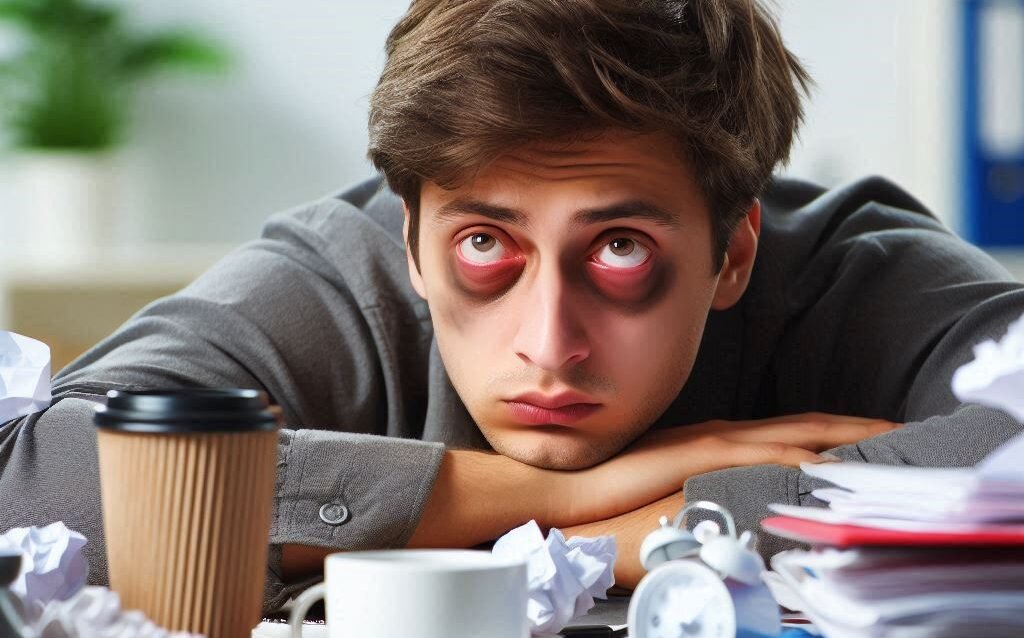Reasons for Insomnia: Why Might You Have Trouble Sleeping After a Long Day?
After a long day filled with physical and mental exertion, it’s natural to expect to fall asleep quickly as soon as you lay your head on the pillow. However, you may find yourself struggling with insomnia, tossing and turning in bed for hours without being able to sleep, despite feeling extremely tired. What are the reasons for your sleep deprivation?
Melatonin and the Biological Clock
The biological clock is one of the main reasons behind your inability to sleep, along with several other factors.
Circadian Rhythm: Sleep specialist Dr. Christopher Winter explains in an interview with Healthline that the circadian rhythm acts as an internal clock system that relies on the cycle of day and night to regulate bodily functions, such as temperature, metabolism, sleep, and the secretion of hormones, including melatonin, which plays a crucial role in sleep.
During daylight hours, melatonin levels remain low. When darkness falls, the body begins to increase its production, peaking between 2 and 4 AM, before declining again. Therefore, if you feel exhausted but cannot sleep, the reason may be a disruption in your circadian rhythm.
Improper Napping
Napping during the day can be beneficial if done correctly, but if you take a nap inappropriately, it may lead to difficulty sleeping at night despite feeling tired. Common mistakes include napping for too long or too late in the day, making it harder to fall asleep at night.
Sleep Disorders
Insomnia is one of the most common sleep disorders, but there are also other prevalent issues such as Restless Legs Syndrome, which, according to the Mayo Clinic, causes an intense urge to move the legs, often occurring at night while sitting or lying down, due to uncomfortable sensations in the legs.
Sleep Apnea is another disorder characterized by repeated interruptions in breathing during sleep.
Treatments for sleep disorders include medications, talk therapy, lifestyle changes, and certain medical devices that help maintain breathing during sleep. These treatments can help alleviate symptoms and enable the patient to sleep better.
Anxiety and Depression
Sleep disorders are closely linked to issues of anxiety and depression, as anxiety can activate the brain and promote wakefulness, leading to significant difficulties in sleeping. Similarly, patients suffering from depression face particular challenges with sleep, as a review published in 2019 indicated that about 90% of individuals with depression report difficulty achieving restful deep sleep. Researchers pointed out that the relationship between depression and sleep disorders may stem from inflammation and changes in brain chemicals.
Using Smart Devices Before Sleep
It is now widely recognized that blue light emitted by phones, tablets, and TV screens negatively affects sleep by inhibiting melatonin production and reducing feelings of drowsiness. Therefore, it is recommended to stop using smart devices at least two hours before bedtime. If you cannot do this, consider wearing blue light-blocking glasses for these devices.
How to Achieve Comfortable Deep Sleep
Here are some tips to help reduce feelings of fatigue and achieve sufficient deep sleep:
- Go to Bed at a Set Time: This helps regulate your circadian rhythm, allowing your body to automatically anticipate when to sleep and wake up.
- Relax and Reduce Stress: It can be challenging to achieve deep sleep when you’re under intense stress. To promote relaxation, engage in calming activities such as deep breathing, taking a bath, reading, or listening to soothing music before bed.
- Prepare Your Bedroom: Loud noises and bright lights in or near your bedroom can negatively affect your ability to achieve deep sleep. Ensure your bedroom is comfortable and conducive to sleep; keep it dark and quiet, adjust the temperature to suit your comfort, and choose a comfortable bed and pillows.
- Limit Daytime Napping: Remember that long or irregular naps during the day may disrupt your circadian rhythm and affect your nighttime sleep. The ideal nap should last between 20 to 30 minutes and ideally occur at the same time each day to allow your body to adjust.
By following these tips, you can improve your sleep quality and enjoy deep, restful sleep.




